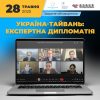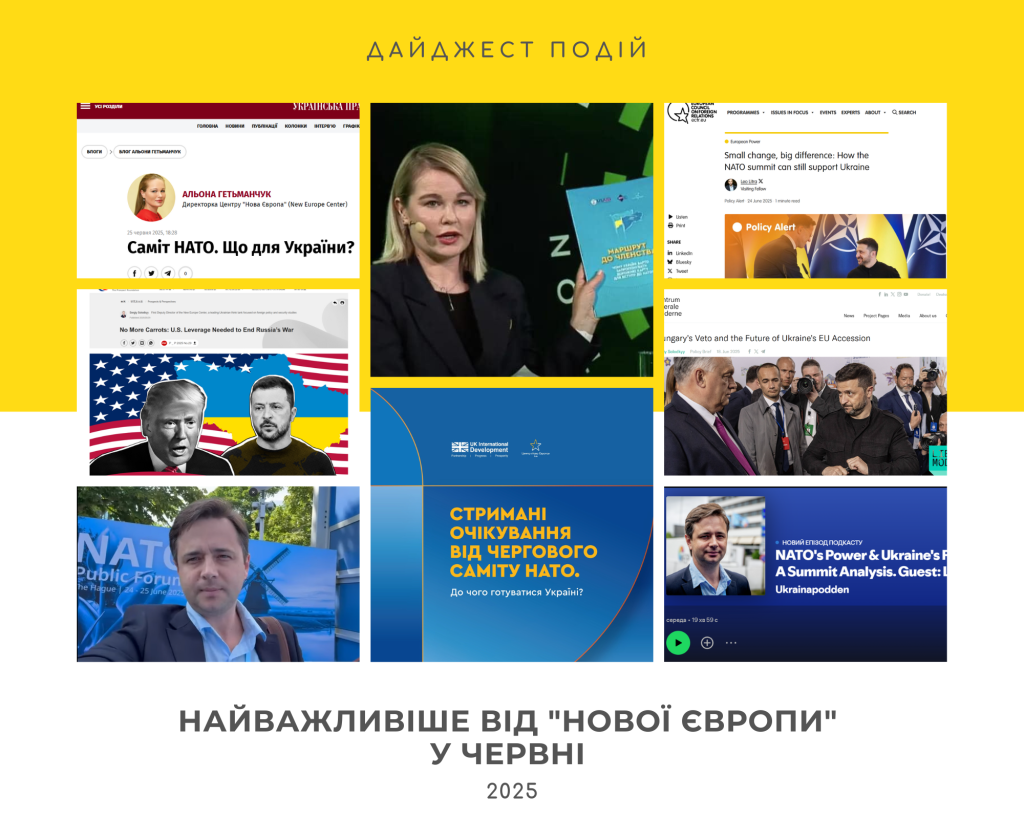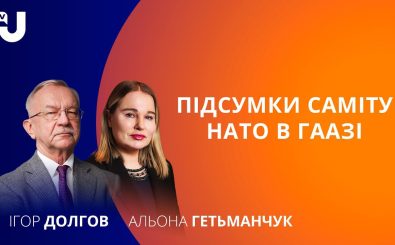Remarks by Ariel Rodal-Spieler, Leading Columnist, Interdisciplinary Center in Herzliya (IDC Herzliya), at the conference “Israel’s Experience of Nation-Building: Lessons for Ukraine”, that was held by the New Europe Center and Ukrainian-Jewish Encounter on June 12.
The following is a summary of my remarks on Israel’s experience of inclusion of special needs populations and the younger generations. I discussed how Israel has been successful in the following two spheres: inclusion of people on the autism spectrum and frameworks that train future leaders (in particular IDC Herzliya and the World Jewish Congress Jewish Diplomatic Corps).
A key factor in a country’s national strength and resilience is the citizens’ sense of belonging (inclusion), and positive ties and emotional attachment between each other (social cohesion). With regards to members of society with special needs, the state’s goal should be not only inclusion, but empowerment. That is, their feeling should be not only that they are being cared for by the state and by civil society, but that they are being brought into the national experience, that they are part of the story. They should be nurtured in a way that encourages them to make a unique contribution to the future of the state in whatever way they can; this is something Israel does very well.
People on the Autism Spectrum
In Israel, roughly one million people have disabilities, around one-eighth of the population. 1 in 100 children are diagnosed with autism spectrum disorder.
In Israel there is a strong emphasis on early intervention therapies for children on the autism spectrum. Among the rights and benefits available for families with children with ASD are three covered therapies a week, including speech therapy, occupational and physiotherapy, and parental guidance, as well as heavily subsidized activities such as therapeutic horse-riding, art therapy or hydrotherapy. They are also eligible to receive free summer camps, income tax credits, discounts on water, electricity, and phone bills, exemptions from waiting in lines, increased sick leave days for parents, and more.
The general philosophy that guides Israeli policy when it comes to people with special needs, both children and adults, throughout the life cycle, is inclusion to the largest possible extent.
In education, the guiding principle is that students with special needs should be integrated whenever possible in the regular education system instead of in separate institutions, in order to empower the child with special needs to be an active part of society. It also teaches the “regular students” to understand what the needs of their peers with different impairments are; it fosters equality, respect and solidarity.
Israel’s National Special Education Law of 1988 states that the purpose of special education is to advance and develop the abilities and potential of disabled children for the purpose of becoming part of society and being integrated in the workforce. The law provides for special education for individuals between the ages of 3 and 21.
A range of options, support systems and specifically adapted instructional modes has been developed for children with a variety of difficulties and disabilities. These include:
- Special classes within regular schools. There are diverse types of special classes, including those where students spend their days partly in regular classes and partly in special classes, and those where students with and without special needs study together fully and are taught by two teachers (one regular and one special education teacher).
- There is an option to have personal shadow within the regular system. In many cases, when the child is older, the shadow is “undercover” so the child isn’t set apart from his or her peers.
- Additional support settings for children with special needs, including multidisciplinary resource centers for students in regular settings. These centers provide assessment, support, intervention and treatment by special education teachers, occupational therapists, physical therapists, speech therapists, and more.
For students who must be referred to separate special education settings, every effort is made to minimize segregation and exclusion. Integration programs with neighboring schools have been designed for children who have severe disabilities such as low-functioning autism or cerebral palsy and attend special schools. These programs enable such students to visit regular school settings on a part time basis, either with or without assistance.
The decision to mainstream students with special needs into the regular education system or to place them in special settings is made in accordance with an assessment of students’ unique educational needs and functioning. Ultimately, in almost all cases, the parents decide.
Following high school, the next stage for the majority of Israelis is the army, which is mandatory. Most disabled Israelis, including those on the autism spectrum, are exempt from conscription. However, there are many special needs individuals who wish to volunteer for the army, and there are plenty of opportunities for them to do so. The IDF is the army of all of the people, the “great equalizer” where youth from all walks intersect. Not enlisting in the army may pose a barrier to advancement in their lives, as military service is a significant step in Israeli society, symbolically as well as professionally. Those who do not enlist risk finding themselves feeling that they are on the sidelines of society, and may even have a harder time being accepted to university or finding a job.
There are several programs that facilitate the inclusion of individuals with special needs into the army. The following are two examples:
- “Special in Uniform” is a program that is a partnership between the Ministry of Defense, the Jewish National Fund, and other bodies, that integrates youth with disabilities into the IDF and helps prepare them for careers and integration into adult society following army service. The program emphasizes the unique talents and skills of each individual and matches him or her to a suitable job within the IDF that allows him to use his or her abilities.
- “Ro’im Rachok” is a program designed to train young adults on the autism spectrum in professions required by the IDF and the civilian market. It was founded in 2013 by two Mossad veterans who realized that certain individuals on the autism spectrum could be unusually skilled at things like spending long hours analyzing aerial reconnaissance photographs and picking out tiny details. The program seizes on the participants’ perceptive capabilities and their knack for precision or repetition and places them in the military’s most elite and sensitive intelligence units, where they pore over satellite imagery or serve in quality assurance roles, verifying that the software the military develops is flawless. The soldiers are accompanied by therapists, for their own benefit as well as to accommodate for some social barriers their commanders and colleagues may encounter. The program also helps to prepare people for future careers in Israel’s booming tech sector.
Regarding the work force, Israeli legislature has been passed that is intended to benefit individuals with special needs, most notably a law obliging every government office and association to employ 5% of workers with physical or emotional disabilities. The Knesset itself was the first government body to implement this law and, at present, employs significantly more than the 5% quota.
In addition, there are hundreds of organizations in Israel providing medical services, therapy, recreational activities, advocacy, and residential options for individuals with special needs.
Empowerment of the next generation:
Empowering future leaders is also a key factor in fostering national resilience, and something that Israel sees as a national priority. I have the honor of being involved in two institutions that embody this principle: IDC Herzliya and the WJC Jewish Diplomatic Corps. Both have the goals of training a new generation of leadership and empowering younger generations to make a difference in their community, society, and on a global scale.
IDC Herzliya is Israel’s first private university and an Israeli success story. The university’s outlook sees the students as partners. The faculty is dedicated to IDC Herzliya’s primary goal: giving students the tools they need to become leaders both in Israel and abroad. IDC Herzliya emphasizes initiative and leadership, innovation and entrepreneurship, and community service. The training of future leaders is done in part by providing educational programs that combine academic study with practical, hands-on training and encourage innovative thinking. Graduates of IDC Herzliya include members of Knesset, hi-tech entrepreneurs, and more.
The JDCorps is a flagship program of the World Jewish Congress. It is a worldwide network of young Jewish professionals acting in the fields of diplomacy and public policy on behalf of world Jewry. There are 200 members worldwide, many of whom are based in Israel. JDCorps activities focus on advocacy on WJC core topics, such as interfaith relations, combating the de-legitimization of Israel, anti-Semitism and Holocaust legacy, and safeguarding human rights and minority rights. The JDCorps empowers the younger generation to take on leadership roles on the issues that matter to Israel and to world Jewry.







